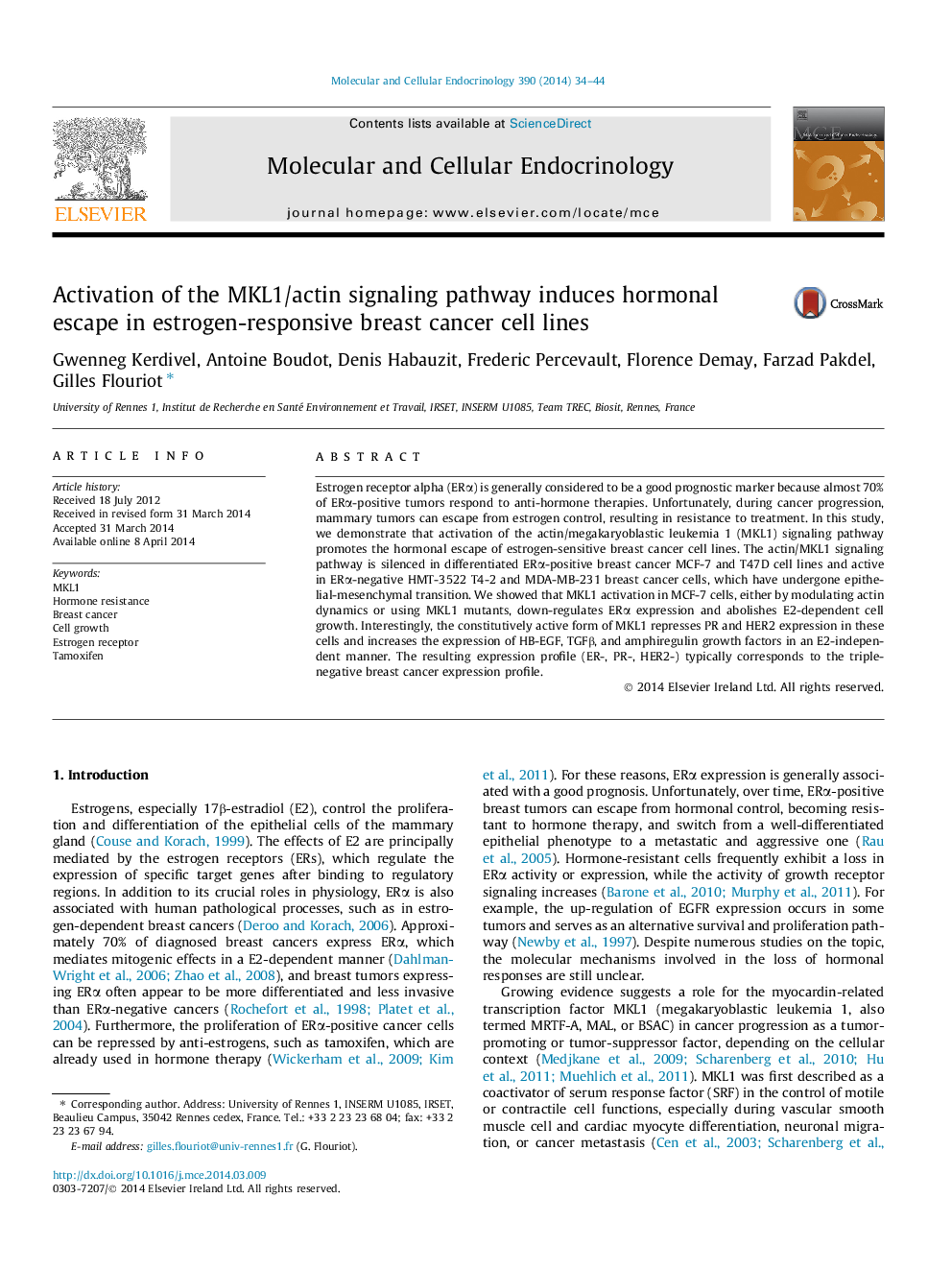| Article ID | Journal | Published Year | Pages | File Type |
|---|---|---|---|---|
| 2196032 | Molecular and Cellular Endocrinology | 2014 | 11 Pages |
•MKL1 activity is enhanced in estrogen (E2)-independent breast cancer cell lines.•MKL1 activation in E2-dependent MCF-7 cells represses estrogen receptor expression.•MKL1 activation abolishes E2-dependent proliferation and transcription.•Growth factor signaling and E2-independent proliferation are enhanced by MKL1.•MKL1 activation result in hormonal escape and tamoxifen-resistance.
Estrogen receptor alpha (ERα) is generally considered to be a good prognostic marker because almost 70% of ERα-positive tumors respond to anti-hormone therapies. Unfortunately, during cancer progression, mammary tumors can escape from estrogen control, resulting in resistance to treatment. In this study, we demonstrate that activation of the actin/megakaryoblastic leukemia 1 (MKL1) signaling pathway promotes the hormonal escape of estrogen-sensitive breast cancer cell lines. The actin/MKL1 signaling pathway is silenced in differentiated ERα-positive breast cancer MCF-7 and T47D cell lines and active in ERα-negative HMT-3522 T4-2 and MDA-MB-231 breast cancer cells, which have undergone epithelial-mesenchymal transition. We showed that MKL1 activation in MCF-7 cells, either by modulating actin dynamics or using MKL1 mutants, down-regulates ERα expression and abolishes E2-dependent cell growth. Interestingly, the constitutively active form of MKL1 represses PR and HER2 expression in these cells and increases the expression of HB-EGF, TGFβ, and amphiregulin growth factors in an E2-independent manner. The resulting expression profile (ER-, PR-, HER2-) typically corresponds to the triple-negative breast cancer expression profile.
